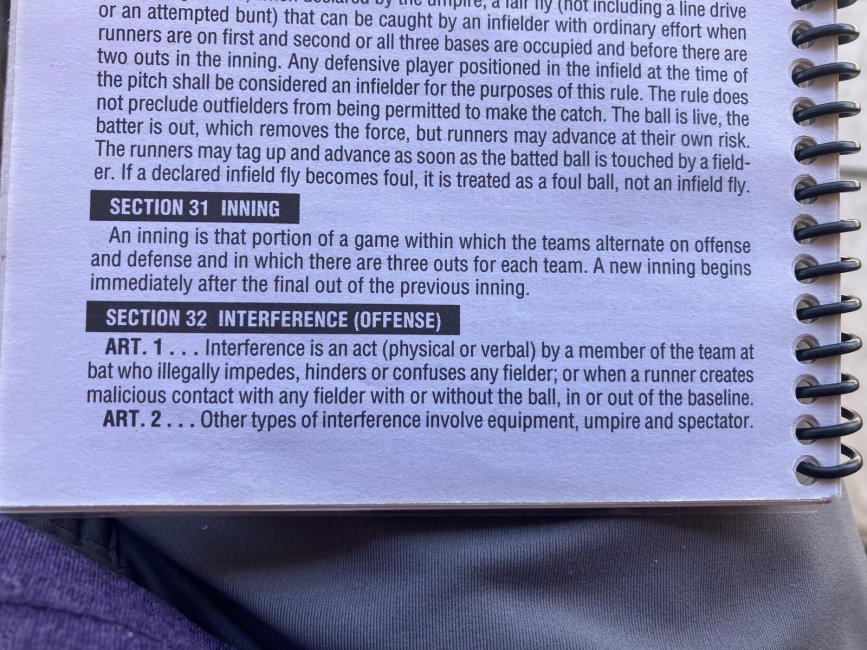A friend described this recent play to me:
Runner on 2nd, 2 outs a 2-1 count on the batter; pitcher throws a change up that the batter swings at misses. Ball hits the dirt before the catcher catches it. Runner on 2nd broke for third on pitch release.
Batter takes off for first thinking it was strike three. Catcher instinctually throws to first, runner now on third goes home on the throw to first. Umpire brings the batter back to the plate to finish the at bat, run allowed to count.
Right call? Could a case be made for interference, since the batter confused the catcher?
Runner on 2nd, 2 outs a 2-1 count on the batter; pitcher throws a change up that the batter swings at misses. Ball hits the dirt before the catcher catches it. Runner on 2nd broke for third on pitch release.
Batter takes off for first thinking it was strike three. Catcher instinctually throws to first, runner now on third goes home on the throw to first. Umpire brings the batter back to the plate to finish the at bat, run allowed to count.

Right call? Could a case be made for interference, since the batter confused the catcher?




